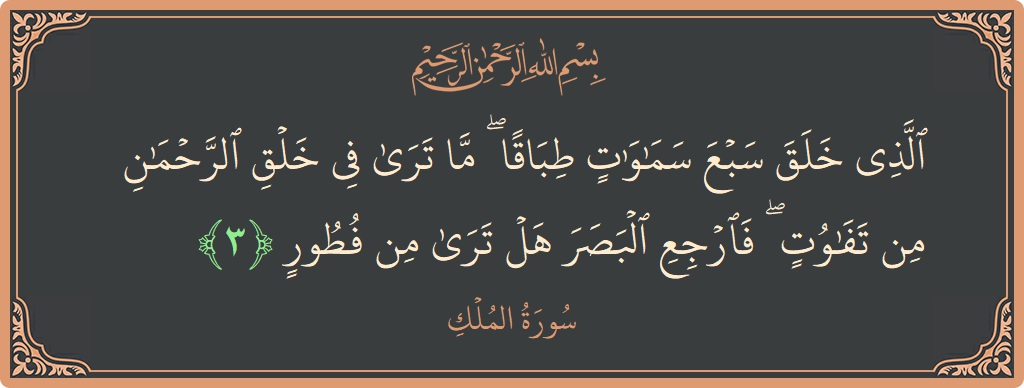Surah Al-Mulk: Verse 3 - الذي خلق سبع سماوات طباقا... - English
Tafsir of Verse 3, Surah Al-Mulk
English Translation
[And] who created seven heavens in layers. You do not see in the creation of the Most Merciful any inconsistency. So return [your] vision [to the sky]; do you see any breaks?English Transliteration
Allathee khalaqa sabAAa samawatin tibaqan ma tara fee khalqi alrrahmani min tafawutin fairjiAAi albasara hal tara min futoorinTafsir of Verse 3
ارْجِعِ الْبَصَرَ هَلْ تَرَىٰ مِن فُطُورٍ (So, cast your eye again. Do you see any rifts?...67:3). Apparently, this verse shows that it is possible to see the nearest sky with the naked eyes. Sky, in this context, does not necessarily refer to the bluish atmosphere seen over the earth. In fact, the sky may be very much higher than this, and the bluish colour may be that of the upper atmosphere, as claimed by the scientists. This, on the other hand, does not necessarily imply that the sky cannot be seen at all. It is possible that the bluish atmosphere, on account of being transparent, may not block the vision of the actual sky. However, if it is proved by any evidence that the sky cannot be seen with eyes, then the 'casting ones eyes' in this verse would refer to 'intellectual observation'. [ Bayan-ul-Qur’ an ]
